Born Ramón Rodríguez Verdejo, he earned the nickname “Monchi” during his playing days as a goalkeeper for Sevilla FC.
However, it was in his role as a sporting director that he truly flourished and revolutionised the way clubs approach player recruitment and squad building.
Therefore, Aston Villa’s new managing director is also called “The Transfer Wizard” or “The Messi of the Offices”.
Delving into the mystique surrounding the esteemed sporting director, Monchi, one cannot help but wonder how he attained such legendary status.
In this Monchi data analysis, we will figure out what sets him apart from the rest.
Also in this analysis, we will discover what makes Monchi methodology so remarkable with data and statistics.
Who Is Monchi?
Monchi’s career as a sporting director began in 2000 when he took charge of Sevilla‘s recruitment department.
With a limited budget, he showcased his exceptional talent for identifying undervalued players and turning them into stars.
His ability to find hidden gems and assemble competitive squads on a tight budget quickly gained attention.
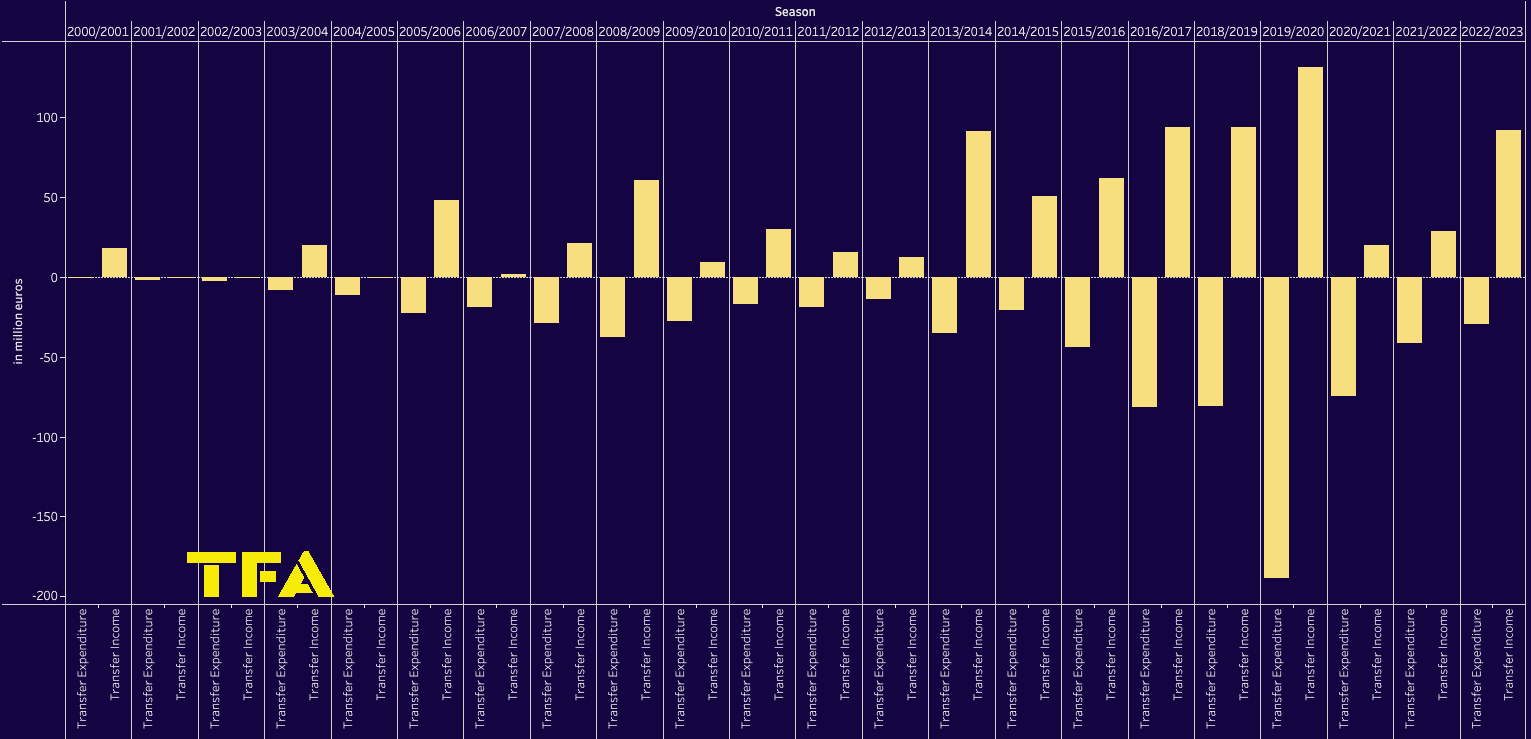
Under Monchi’s guidance, Sevilla experienced unprecedented success, winning numerous domestic and international titles.
His shrewd eye for talent allowed the club to consistently compete with larger and wealthier clubs, showcasing the power of effective player recruitment.
Monchi’s innovative approach, combining data analysis with extensive scouting networks, set a new standard for recruitment strategies in football.
He demonstrated his exceptional ability to transform clubs through strategic player acquisitions and astute decision-making.
Monchi’s impact extends beyond his ability to identify talent.
He is also known for his dedication to nurturing young players and providing them with the necessary support and guidance to reach their full potential.
His emphasis on youth development and creating a pathway for young talents to flourish has resulted in the emergence of several promising players who have gone on to achieve great success.
Monchi’s visionary approach to player recruitment has left an enduring legacy in the footballing world.
His ability to identify players who fit seamlessly into a club’s philosophy and style of play, combined with his keen understanding of market dynamics, has propelled him to the forefront of the sporting director role.
Beyond his accomplishments, Monchi is admired for his humility, work ethic, and commitment to continuous improvement.
He remains dedicated to pushing the boundaries of traditional recruitment methods, embracing new technologies and analytical tools to gain a competitive edge.
Monchi Proven Track Record
Monchi, widely regarded as one of the most exceptional sporting directors in the past 25 years, has often been overlooked for the full credit he deserves due to his limited fluency in English.
However, his achievements as a player arbitrage savant at Sevilla speak for themselves.
Over the years, he has orchestrated a series of remarkable transfers that have not only bolstered Sevilla’s squad but also generated a staggering €421 million in profits for the club.
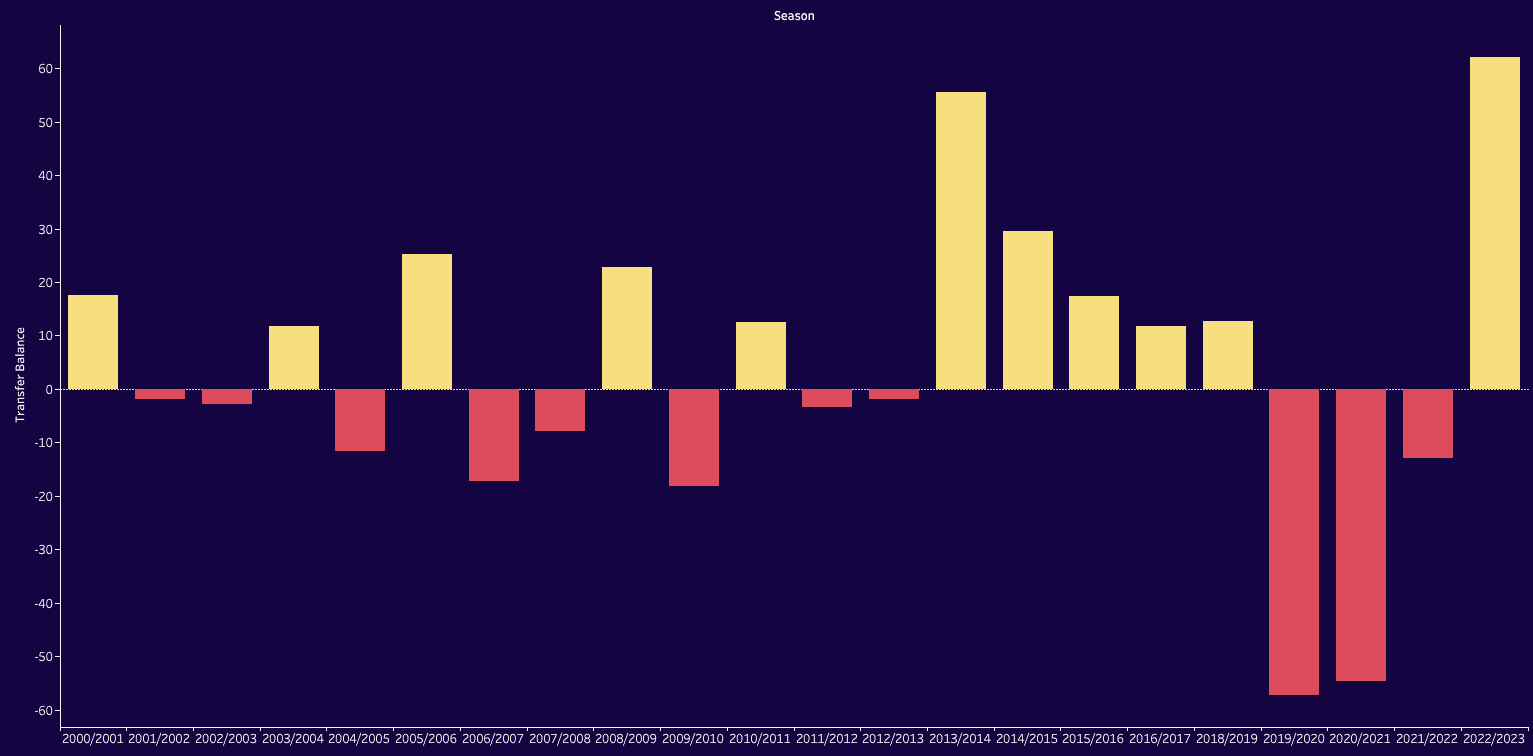
Let’s delve into some of Monchi’s most noteworthy transfers, showcasing his exceptional ability to identify talent and secure lucrative deals for Sevilla:
- Alvaro Negredo: Monchi acquired Negredo for €15 million and later sold him for €25 million, resulting in a €10 million gain.
- Carlos Fernandez: This promising youth product was brought in for no cost and subsequently sold for €10 million, again earning a €10 million gain.
- Seydou Keita: Monchi acquired Keita for €4 million and later sold him for €14 million, securing a €10 million gain for the club.
- Ivan Rakitic: Rakitic was purchased for €2.5 million and later sold for €18 million, generating an impressive €15.5 million gain.
- Aleix Vidal: Monchi secured Vidal for €3 million and later sold him for €17 million, resulting in a substantial €14 million gain.
- Julio Baptista: Bought for €3.5 million, Baptista was subsequently sold for €20 million, earning a remarkable €16.5 million gain.
- Jules Kounde: Monchi acquired Kounde for €35 million and later sold him for €50 million, resulting in a €15 million gain for the club.
- Diego Carlos: Acquired for €15 million, Diego Carlos was later sold for €31 million, securing a €16 million gain for Sevilla.
- Geoffrey Kondogbia: Monchi brought in Kondogbia for €4 million and later sold him for €20 million, earning another €16 million gain.
- Pablo Sarabia: Purchased for a mere €1 million, Sarabia was later sold for €18 million, resulting in a significant €17 million gain for the club.
- Alberto Moreno: As a product of Sevilla’s youth system, Moreno was acquired for no cost and later sold for €18 million, securing an impressive €18 million gain.
- Steven Nzonzi: Monchi acquired Nzonzi for €8 million and later sold him for €26.65 million, earning an €18.65 million gain.
- Jose Antonio Reyes: Another youth product, Reyes was brought in at no cost and later sold for €20 million, resulting in a €20 million gain.
- Jesus Navas: Similar to Reyes, Navas emerged from Sevilla’s youth system without any transfer fee. He was later sold for €20 million, earning another €20 million gain for the club.
- Grzegorz Krychowiak: Acquired for €5.5 million, Krychowiak was later sold for €27.5 million, securing a remarkable €22 million gain.
- Carlos Bacca: Monchi purchased Bacca for €10 million and later sold him for €33 million, resulting in a €23 million gain.
- Kevin Gameiro: Bought for €7.5 million, Gameiro was later sold for €32 million, earning an impressive €24.5 million gain.
- Bryan Gil: Emerging from Sevilla’s youth system, Gil was acquired at no cost and later sold for €25 million, generating a €25 million gain.
- Sergio Ramos: Another product of Sevilla’s esteemed youth academy, was later sold for €27 million, earning an impressive €27 million gain.
- Kevin Gameiro: Bought for €7.5 million, Gameiro was later sold for €32 million, earning an impressive €24.5 million gain.
- Wissam Ben Yedder: Monchi secured the services of Ben Yedder for €9.5 million, and his subsequent sale for €40 million yielded an impressive €30.5 million gain for the club.
- Clement Lenglet: Acquired for €5.4 million, Lenglet proved to be a valuable asset for Sevilla before being sold for €35.9 million, resulting in an exceptional €30.5 million gain.
- Vitolo: Monchi’s shrewdness in the market saw him bring in Vitolo for a modest €3.2 million. Later, Sevilla profited significantly from his sale for €35.6 million, generating a remarkable €32.4 million gain.
- Dani Alves: In one of Monchi’s most notable transfers, he secured the services of Dani Alves for a mere €550,000. The subsequent sale of the talented full-back for €35.5 million brought an astounding €34.95 million gain for Sevilla.
Monchi’s exceptional track record as a manager over the past 20 years is exemplified by his best transfers.
Amongst these notable signings, one name shines brightest: Ivan Rakitic.
In January 2011, Monchi astutely acquired the dynamic midfielder from Schalke 04 for a mere 2.5 million euros, a considerable bargain considering Rakitic’s subsequent success.
However, it is the transfer history of Dani Alves that truly captivates.
The exceptional right-back, who would later establish himself as a world-class player, was brought in from Brazil for less than a million euros.
Just like Rakitic and Clement Lenglet, Alves used his time at Sevilla as a stepping stone to reach the pinnacle of global football at FC Barcelona.
Yet, the remaining players also left an indelible mark on Sevilla, surpassing expectations following their transfers.
Monchi possesses an uncanny ability to identify hidden talents that others might overlook.
Through his astute judgment and keen eye for potential, he consistently unearths players who go on to achieve great success.
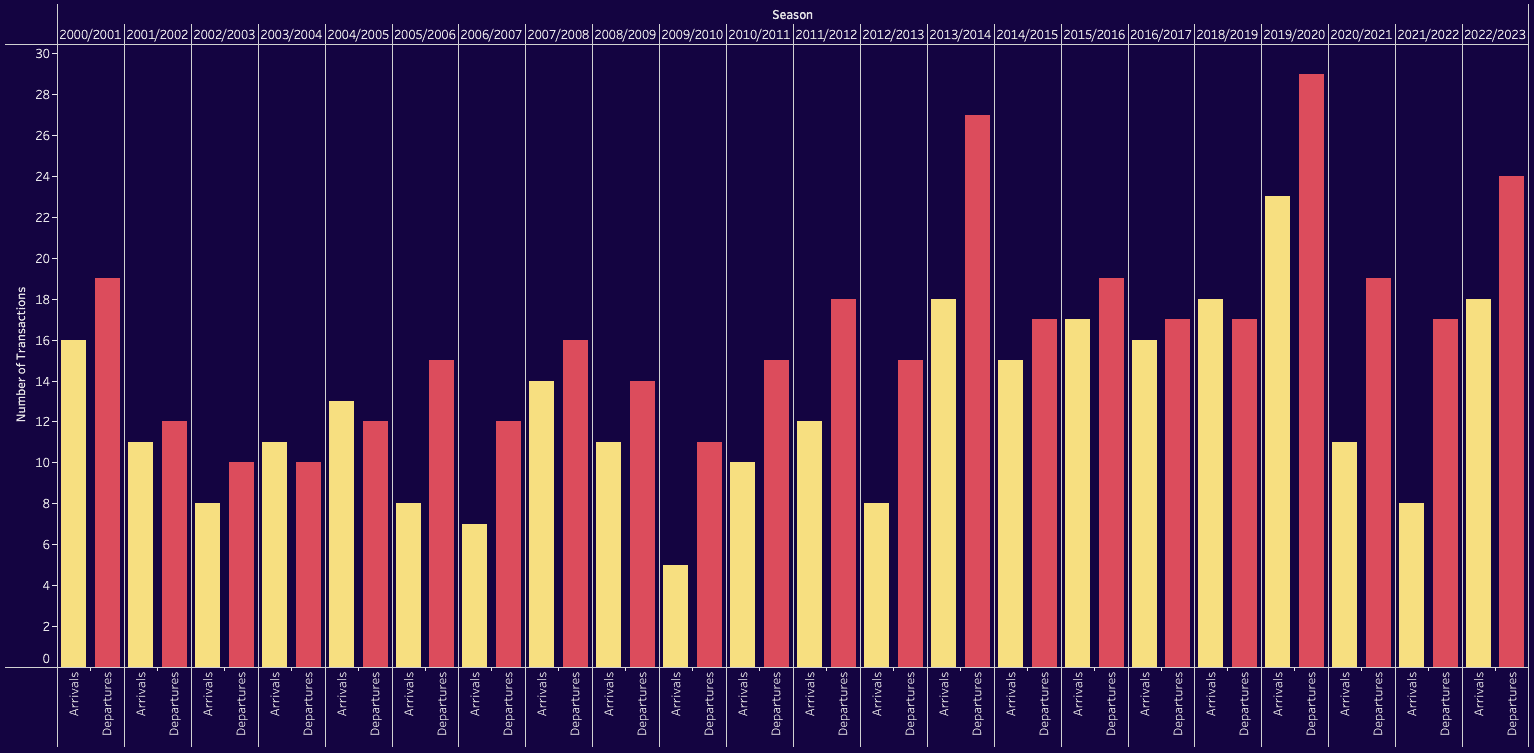
However, even the renowned “transfer wizard” Monchi is not immune to failures.
During his two-year tenure at AS Roma, some of his expensive acquisitions, such as Patrick Schick (€42 million), Steven N’Zonzi (€26.7 million), and Javier Pastore (€24.7 million), failed to live up to expectations.
This resulted in a strained relationship with the club’s board, ultimately leading to his departure after just two years.
The fallout from his scouting methods and transfer decisions turned the entire club, including the fans, against him.
Returning to his hometown club of Sevilla, Monchi faced further challenges in the summer of 2019.
Despite significant investments totalling over 60 million euros in transfer fees, signings such as Rony Lopes, Maximilian Wöber, Oliver Torres, and Munas Dabbur proved to be major disappointments.
Additionally, Luuk de Jong, who remained in the squad, struggled to meet the technical requirements set by coach Julen Lopetegui.
The hiring of Lopetegui as the head coach in July 2019 added another layer of complexity, as players like Lopes and Dabbur found themselves excluded from the squad and eventually departed the club.
Overall, Monchi’s knack for discovering hidden gems has undoubtedly played a significant role in Sevilla’s triumphs over the years.
From bringing the club from the second division in 2000/2001 into La Liga to form a stable team within the top six positions in the Spanish top flight.
Additionally, Sevilla won the UEFA Europa League seven times under Monchi’s reign.
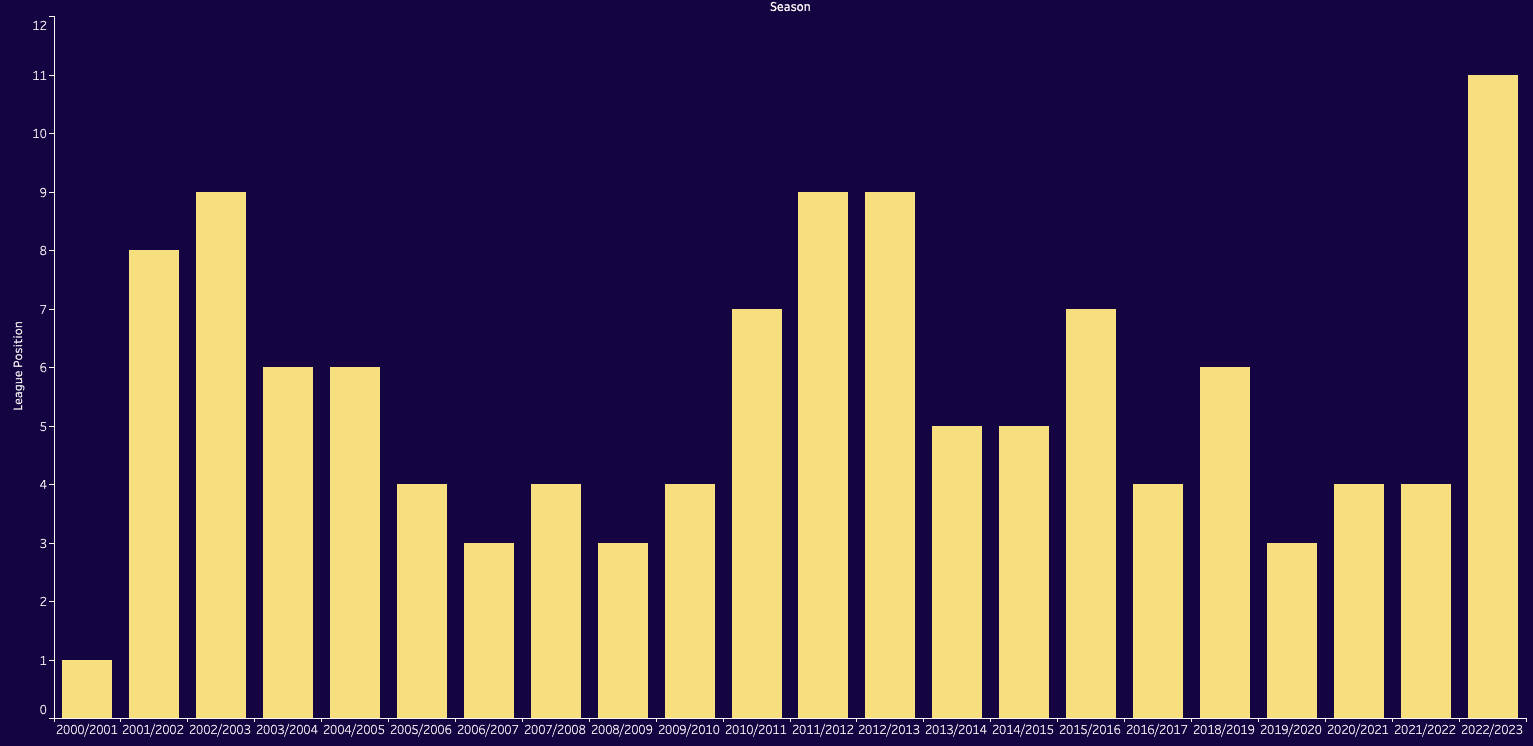
These success stories not only reflect Monchi’s prowess as a talent spotter but also highlight the club’s commitment to nurturing and developing players to their fullest potential.
It is this combination of vision, intuition, and dedication to player development that sets Monchi apart and solidifies his legacy as one of the most revered sporting directors in football.
But what is his philosophy?
The foundations
The foundations of Sevilla and Monchi’s success can be attributed to two simple yet powerful principles: hard work and maintaining strong connections.
Monchi’s primary responsibilities revolve around supporting the players and coach in achieving victories on the field and executing successful transfers in the market.
The Andalusian philosophy, which underpins their approach, rests on three fundamental pillars.
Unity of Purpose: Every department within the club works collaboratively towards sporting success.
There is a shared understanding that individual efforts must align with the collective objective, fostering a harmonious environment conducive to achievement.
Organisational Excellence: Monchi’s approach emphasizes meticulous preparation and rejects improvisation.
Clear goals are set and communicated, leaving no room for ambiguity.
This structured approach ensures that everyone involved understands their roles and responsibilities, fostering a sense of clarity and direction.
The Power of Teamwork: Monchi recognises that his role as a leader is incomplete without the support and contributions of his team members.
He places great value on collaboration, encouraging open communication and leveraging the strengths of each individual.
This emphasis on teamwork fosters a sense of trust, empowering employees to take ownership and initiative.

An intriguing aspect of Monchi’s management style lies in how he handles both successes and setbacks.
When faced with poor results, he takes personal responsibility, shouldering the blame himself.
In cases of mediocre performance, accountability is shared collectively within the group.
However, in moments of triumph, he openly attributes the success to the efforts of others.
This approach nurtures trust among his team members and motivates them to proactively contribute, knowing that their achievements will be recognised and acknowledged.
By embracing these principles, Monchi has cultivated a culture of trust, collaboration, and personal initiative within his team.
It is through this culture that he maximises the potential of his employees and facilitates the realisation of their shared goals.
The combination of hard work, strong relationships, and a focus on organisational excellence has propelled both Monchi and Seville to remarkable heights, earning them the reputation and success they enjoy today.
The scouting process
Monchi has implemented a distinctive approach to scouting, dividing it into two distinct phases: “gross scouting” and “net scouting.” The aim of this division is to allow the sports director and the scouting department to work independently without coordination with the head coach.
By doing so, the coaching staff can fully concentrate on their primary responsibilities of working with the team and winning games.
Monchi’s expertise in the French market is widely acknowledged.
Over the years, he and his scouting team have been able to identify talented yet relatively unknown players from France, nurturing their development and later selling them at significant profits.
For instance, Clement Lenglet was signed from AS Nancy in the second division for €5.4 million in 2017 and was subsequently transferred to FC Barcelona just one year later for €35.9 million.
Similarly, Grzegorz Krychowiak was acquired from Stade Reims in 2014 for €5.5 million and moved to Paris St.
Germain two years later for €27.5 million.
Gross Scouting
During the “gross scouting” phase, each scout focuses on watching as many games as possible in their assigned country or area, without a specific target in mind.
Monchi’s strategy is to scout players for all positions, recognising the potential challenges posed by unexpected departures of key players in the past, which proved difficult to adequately replace due to a lack of preparedness.
Each scout creates their own monthly Top 11 list, comprising the best players for each position.
Importantly, the selection must be realistic, considering factors such as budget constraints.
At the beginning of the gross scouting phase (July to September), scouts analyse as many players as possible.
As the season progresses (October to December), they narrow their focus to approximately 4-5 players per match, allowing for more detailed assessments.
Monchi classifies the leagues into three categories:
- National leagues with the highest priority (e.g., Bundesliga, Ligue 1, Serie A): Monthly Top 11 lists are created for each league.
- Other national leagues (e.g., Ekstraklasa, MLS, Liga MX): Monthly Top 11 lists are compiled across all these leagues.
- International tournaments (e.g., World Cup, Asia Cup, Africa Cup of Nations): Top 11 lists are generated for each tournament.

An intriguing aspect of Monchi’s approach is the evaluation of category B leagues.
Rather than solely relying on national leagues, he incorporates scouting of the respective national teams, from the senior team down to the U18 level.
Monchi holds the belief that national team coaches possess valuable knowledge and expertise, which he effectively incorporates into his scouting workflow.
By adopting this meticulous and systematic approach to scouting, Monchi has established a robust foundation for identifying and acquiring talent, ensuring that Sevilla FC remains well-prepared and proactive in the face of potential player departures.
This methodology has proven to be instrumental in the club’s sustained success and its ability to secure promising prospects who can contribute to the team’s achievements both in the present and future.
Net scouting
In the net scouting phase, the players identified during the gross scouting period undergo intensive scouting.
Monchi places significant emphasis on two key aspects.
Firstly, the scouting process should encompass various scenarios to provide a comprehensive understanding of the player.
This includes evaluating their performance in home and away games, against strong and weak opponents, as well as during international duties.
Secondly, multiple scouts are involved in the process.
This ensures that a scout no longer holds the same evaluation for players they have previously assessed during gross scouting.
By incorporating different perspectives, a wide range of opinions is obtained and consolidated into a comprehensive evaluation for each scouted player.
Typically, each potential signing is scouted six to seven times.
As previously mentioned, Monchi’s scouting efforts have been particularly active in France, with a significant number of players being signed from leagues such as La Liga, Serie A, Ligue 1, Eredivisie, and the Premier League.
Notably, within Spain, Monchi has predominantly targeted players who are not necessarily expensive but provide valuable squad depth.
The most expensive La Liga signing made by Monchi was Steven N’Zonzi, during his tenure at AS Roma.
While Monchi has not extensively recruited players from the Bundesliga, there are a few notable signings such as Ivan Rakitic and Ciro Immobile.
These acquisitions demonstrate his ability to identify talent from various leagues and harness their potential within his scouting network.
By employing a meticulous and extensive scouting process, Monchi has been able to unearth hidden gems and secure valuable additions to Sevilla’s squad.
His comprehensive approach to player evaluation and his proficiency in the French market have undoubtedly played a significant role in the club’s sustained success and ability to compete at the highest level.
Negotiating Process
After the intensive scouting process, Monchi involves the coach in April to collaborate on the player selection.
Monchi explains that the coach provides a list of profiles he deems necessary to improve the team.
Based on these desired profiles, the scouting department identifies suitable players who align with the coach’s expectations.
From an initial pool of over 500 players (from gross scouting), a narrowed-down list of approximately 6-8 players per position is created.
This list is presented to the coach with the aid of video footage.
In addition to the traditional factors such as physical, technical, and tactical skills, as well as psychological profiles, certain criteria hold immense importance for Monchi when evaluating and selecting players:
- Economic conditions: This encompasses the player’s current market value, potential release clauses, and salary expectations over the duration of their contract.
- Acclimatisation period: Monchi considers whether the player can immediately perform and deliver their best performances under different conditions such as pressure, fan expectations, and media scrutiny.
- Future increase in value: Monchi follows the 70/30 rule, where 30% of new signings are expected to perform immediately, while the remaining 70% require more focus on development and value enhancement.
To facilitate the smooth adaptation of new arrivals to the club, Monchi has implemented three key strategies that prioritise the individual beyond their role as a football player, shifting the focus solely to the pitch:
- Knowledge about the club: New signings are provided with comprehensive information about the club’s philosophy, history, city, rivalries, and media landscape.
- Understanding the player’s character: The club invests time in understanding the player’s background, including their family, traditions, hobbies, and personal habits.
- Thoughtful introduction: The player’s introduction to the club is meticulously planned, ensuring that no undue pressure or grandiose statements are made that could hinder their adaptation process.
By considering these factors and implementing a comprehensive approach to player integration, Monchi strives to ensure that new signings can seamlessly integrate into the club, both on and off the field.
This approach aims to set the stage for their success and maximise their potential within the team.
The Role of Data
In recent years, Monchi has recognized the immense value of big data and artificial intelligence in managing and improving the scouting strategy at Sevilla.
Sevilla FC has established its own dedicated department responsible for data collection and analysis.
The club’s focus lies in three critical areas:
- Scouting: Through precise parameters and criteria, Sevilla FC defines the specific skills and attributes that potential signings must possess. This approach allows them to filter out irrelevant players from the start, streamlining the scouting process and maximising efficiency.
- Injury prevention: By collecting data on various factors such as sleep patterns, nutrition, stress levels, and pitch conditions, Sevilla FC aims to identify patterns and trends related to player injuries. Armed with this information, the club can proactively implement measures to prevent injuries and maintain player fitness.
- Transfer market: Leveraging the power of artificial intelligence, Sevilla FC utilises data-driven insights to predict optimal timings for player acquisitions and sales. Factors such as the league standings, injury situations, and interpersonal relationships within the team are taken into account, enabling the club to make informed decisions and maximise their transfer market activities.
Given the impact of the COVID-19 pandemic, which has resulted in limited travel options and restricted fan attendance in stadiums, Sevilla had to adapt its strategy.
This adjustment had likely necessitated an increased reliance on data-driven approaches.
Monchi saw an opportunity to seize the challenges as a catalyst for establishing a sustainable transfer policy.
By utilising videos and data for preselecting promising players and conducting live scouting only as a final step, clubs can reduce personnel costs and minimise time-consuming travel without sacrificing the quality of their player evaluations.
Monchi’s embrace of data-driven decision-making demonstrates his forward-thinking mindset and commitment to staying at the forefront of the industry.
It is through such innovative approaches that clubs can enhance their competitiveness and ensure long-term success in an ever-evolving football landscape.
Conclusion
These setbacks highlight that even someone as accomplished as Monchi is not infallible in the transfer market.
The nature of football involves a level of uncertainty, and not every signing will yield the desired results.
Nonetheless, Monchi’s overall track record and success in identifying hidden talents and securing profitable transfers cannot be overlooked.
His ability to learn from failures and adapt his approach has been instrumental in his continued prominence in the world of football.
As Monchi continues to make his mark in the footballing world, his influence on the art of player recruitment will endure for years to come.
He has redefined the role of the sporting director, showcasing that with the right approach and vision, even the most modest of clubs can compete and thrive on a global stage.
Monchi’s legacy is a testament to the enduring impact that a visionary and talented sporting director can have on the beautiful game.
Aston Villa are getting one of the best sporting directors in the world.

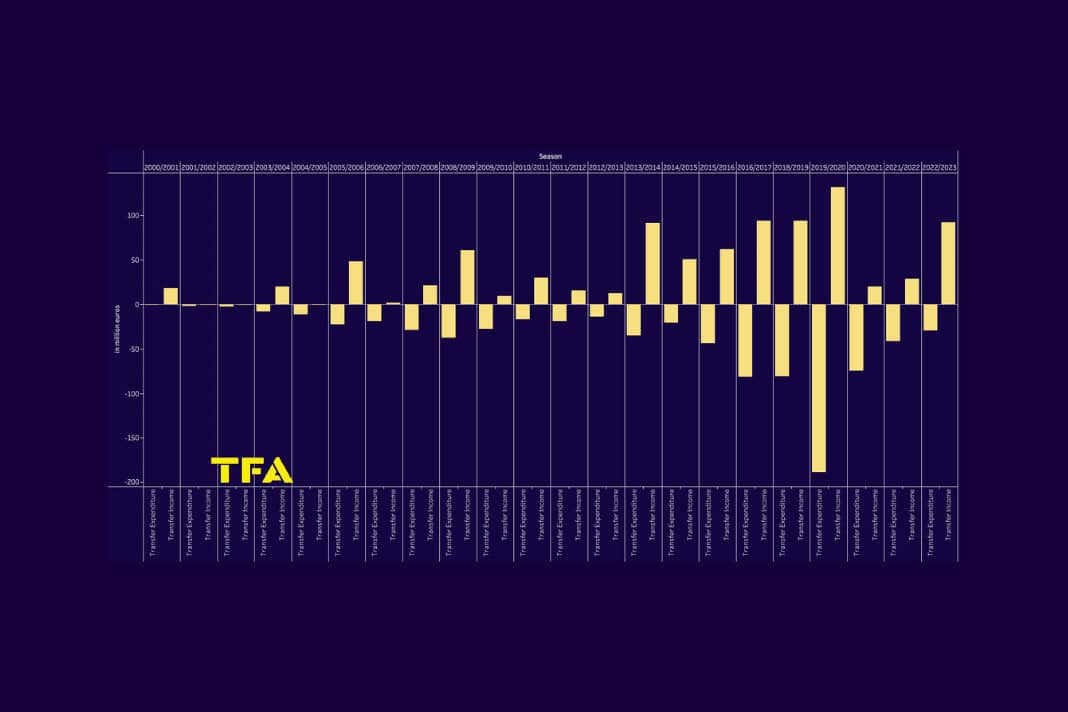



Comments